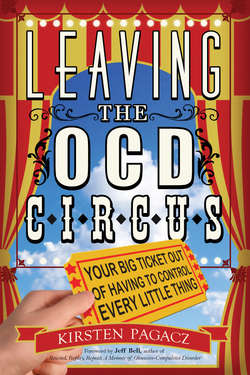Читать книгу Leaving the OCD Circus - Kirsten Pagacz - Страница 19
На сайте Литреса книга снята с продажи.
Sergeant Style
ОглавлениеPerfecting, tapping, staring, checking, cleaning, transferring, dieting, blinking, swallowing—the challenge was to do all of these things with no one noticing. Sergeant and I had numerous covert operations.
It was a new school year: 1978. Feathered hair was still a big trend. My brown hair was short, feathered in layers, and swooshed back. I had the Kristy McNichol cut, and I loved it. (She played the youngest daughter on a hit TV show called Family.)
By now, Sergeant and I were a highly functional and exacting team; after all, he demanded perfection. I was an A student and was ready for any challenge. In my back pocket, resting on my rear and sometimes poking me in the butt, were my perfectly sharpened—like surgical tools—number-two pencils. I was ready for any test by any teacher at any given time. I was focused on doing well.
I didn't like the lead residue left on my hands after sharpening my pencils; but I couldn't always go wash my hands immediately after. By not washing, I felt as though I was not finishing my task to full completion, and this bothered me. I would think about the “transfer of residue” to other things that I touched. This could lead to an infinite amount of “transfer.” I would be responsible for adding invisible grime to the universe. This made me feel guilty that I wasn't cleaner—not to mention the terrible stink of a sawmill that I had with me. In class I would think about my stinky hands over and over again, and I couldn't seem to get them out of my mind and stop worrying about them. If I only could have washed my hands!
This inability to forget unfinished tasks is known as the Zeigarnik effect [who knew!].
—BEN PARR, CAPTIVOLOGY
